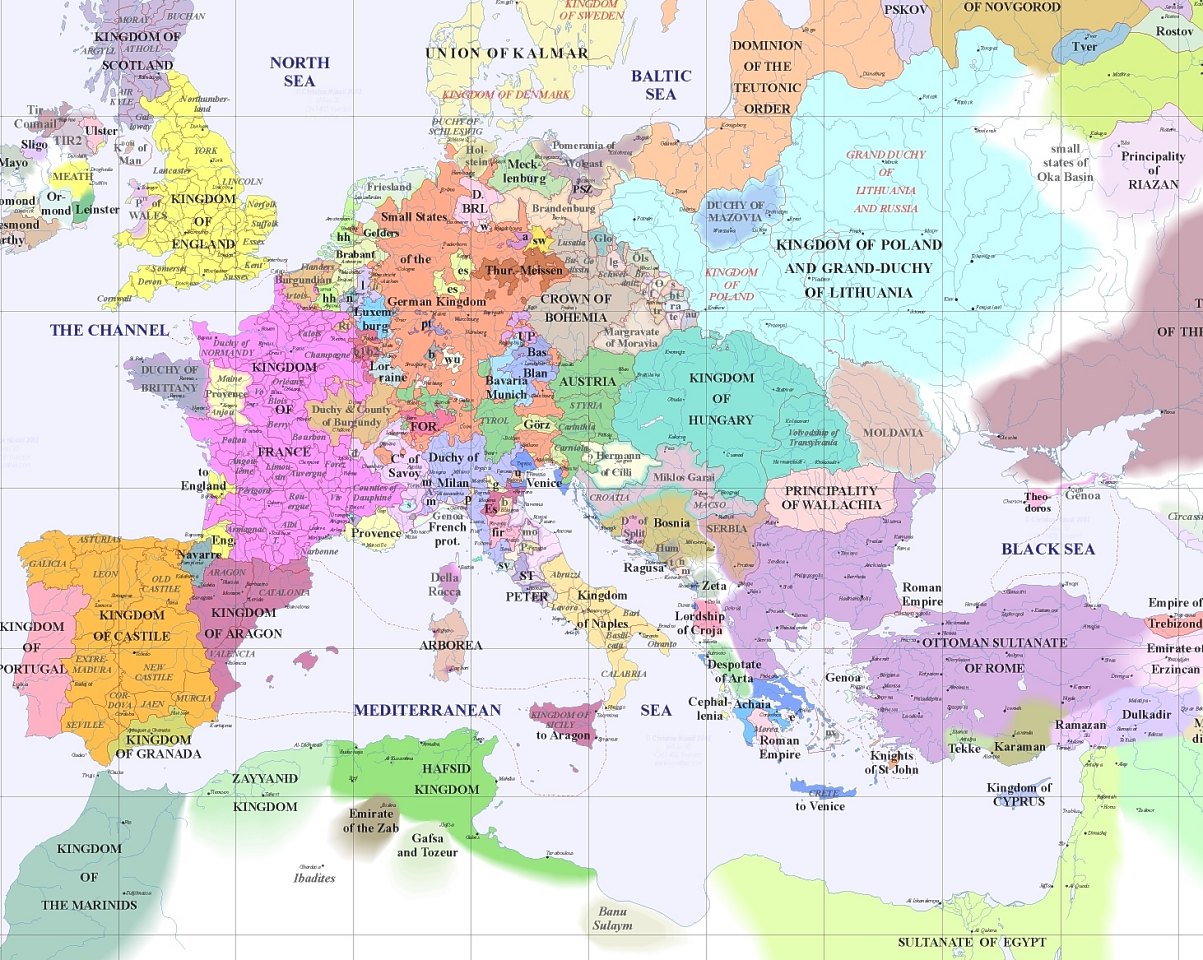Indo-Europeans to the Middle Ages
Indo-European Invasions triggered by Flooding of Black Sea 5600 B.C.
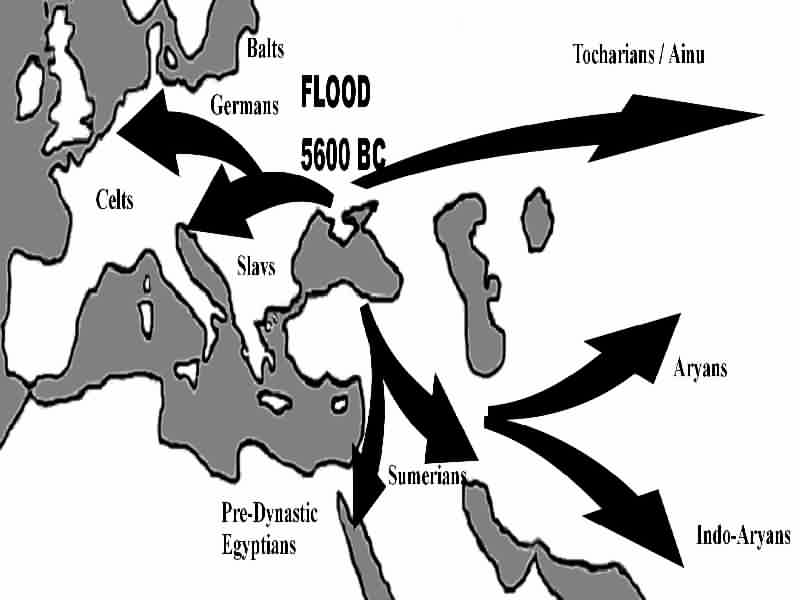
Indo-Europeans (Aryan language)
- Nomadic tribes from Steppes of Asia
- Herders and Grazers
- Warfare using horses
- Swept into Old Europe, Middle East, India starting about 5,000 BC
- Religion of war and male domination
- Male gods of sky, thunder, war and mountains
- Warrior Priests
- Imposed ideology:
- Male dominance
- Hierarchy
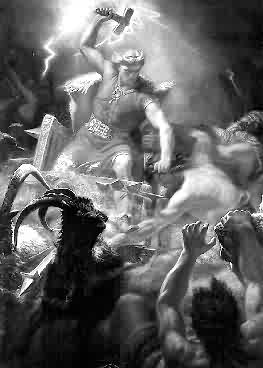
Thor
Indo-European Conquerers
- Aryans in India
- Hittites and Mittani in the Fertile Crescent
- Luians in Anatolia (Turkey)
- Kurgans in eastern Europe (Battle-Axe People)
- Achaeans, Dorians in Greece
Diffusion of Indo-European Languages


Before Indo-Europeans
- Sedentary agrarian society
- Fertility and nature worshiped
- Goddess gave birth to World, Agriculture
- Priests male and female
- Women’s status similar to men’s: Graves Equal
After Indo-Europeans
- Herding introduced
- Warfare, war culture dominates: Fortifications built
- Male War Gods worshiped: Male dominated society, religion
- Goddess loses status
- Killed or raped by male god
- Becomes consort of male god
- Becomes goddess of war
- Women lose status in society
- Owned by fathers then husbands
- Graves unequal
Early Civilizations
- City states
- Elites
- Religion
- Crop domestication
- Animal agriculture
- Trade
- Metallurgy
- Population explosion
Mesopotamia
- Flooding of Tigris and Euphrates fertilized soil
- Irrigation, drainage produced early abundance
- Competition and warfare between city states: Ur, Uruk, Nippur, Babylon, Kish Nineveh, Assur, etc.
- Over salinization reduced wheat productivity in south by 2,000 B.C.: political power shifted north
- Eventual large scale ecological destruction
- Forests destroyed for fuel, ship building
- Fields and pastures worked until barren

Fertile Crescent
Egypt
- Yearly flooding of Nile fertilized soil.
- Irrigation, drainage controlled by Pharaoh
- Abundant crops: wheat. (Later would be conquered for its productivity)
- Relative geographical isolation: strong central government, religion
- Unification of North and South Nile by 3,500 B.C.
- 2,000 year dynasty ended in Persian conquest 500 B.C.
Indus Valley Civilization
- Arose 3000 BC
- Contemporary of Egypt, Mesopotamia
- Lasted 1500 years
- Conquered by Aryans from north
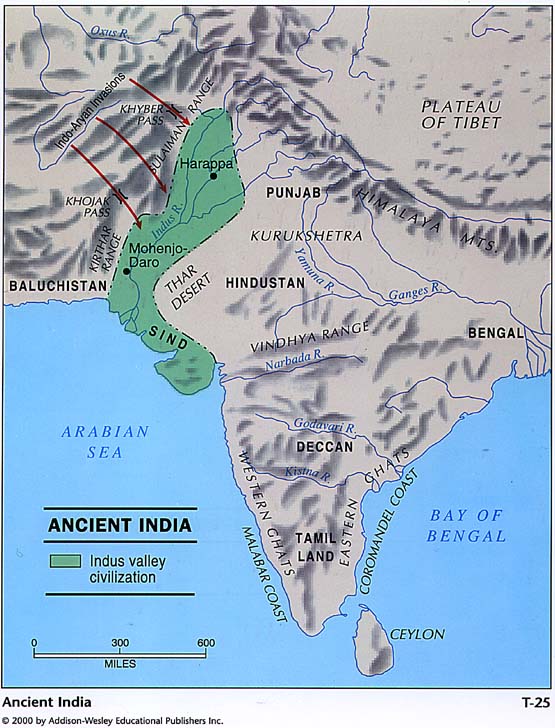
Aryan Invasion of India
- Aryans invaded 1750 BC
- Indus, then Ganges valleys
- Horse and herding culture
- Vedas and Caste system: Foundation of Hinduism
- Feudal Kingdoms spread through India: ruled by Brahmins (Priests)
Assyrian Empire: 600 B.C.

Assyrian War Bulletin (1000 B.C.)
“Asshur my Lord commanded me to go forth…I covered the regions of Saraush and of Ammaush with ruins…I proved myself against their armies at the mountain of Aruma, I chastised them, I strawed the earth with their bodies as they had been beasts of the field; I took their cities in possession, I carried away their gods, I led them away captive, them and their goods and their treasures; I burned the cities with fire, I destroyed them, I made them even with the ground, I made of them heaps and a desolation; I laid upon them the grievous yoke of my dominion, and in their presence I gave thanks unto Asshur my Lord.”
“I slew two hundred and sixty fighting men; I cut off their heads and made pyramids thereof. I slew one of every two. I built a wall before the great gates of the city; I flayed the chief men of the rebels, and I covered the wall with their skins. Some of them were enclosed alive in the bricks of the wall, some of them were crucified on stakes along the wall; I caused a great multitude of them to be flayed in my presence, and I covered the wall with their skins. I gathered together the heads in the form of crowns, and their pierced bodies in the form of garlands.”
“The inhabitants forsook their strongholds and their castles: they fled for safety towards Matui, a strong country; I rushed after them in pursuit; I strawed a thousand bodies of the warriors upon the mountain; I covered the mountain with their dead bodies; I filled the valleys therewith. As for two hundred that I had taken alive, I pierced their wrists. My face rejoiceth over ruins; in the satisfying of my wrath I have my pleasure.”
Biblical Warfare
Saul instructed by God to destroy the Amelekites (1000 B.C.):
“Spare no one; put them all to death, men and women, children and babes in arms, herds and flocks, camels and asses.”
-- I Samuel 15:3
Persian Empire: 525 B. C.

The World: 500 B.C.

Alexander the Great
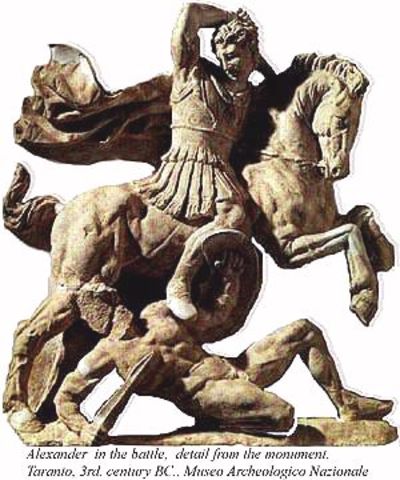
Empire of Alexander the Great: 323 B. C.

Greek Influence
- Alexander the Great conquered the Achaemenid Persian Empire 323 B.C.
- Introduced Hellenistic culture to the mideast
- Maintained by subsequent Greek rulers until 130 B. C.
- Greeks colonized southern Italy and Sicily for grain growing
Roman Empire
Romans conquered Italy and Sicily,
Romans then conquered the entire Greek world (except for Persia):
- Asia Minor
- Mesopotamia
- Egypt
- Much of Europe
Roman Empire: 120 A.D.

Roman Empire: Wheat Empire
- Roman empire dependent on wheat to feed soldiers, populace of Rome
- Roman forts were granaries designed to hold a year supply of wheat in case of siege
- Soldier’s rations were 3 pounds of wheat a day.
- Barley was punishment rations
- The Roman garrison in Britain consumed 1,277.5 tons of grain/yr
- Much of it was brought by ship from supply depots
Roman Trade
- A fleet of specialized grain carriers was used to import wheat from Egypt to Rome
- Huge food giveaway program for citizens
- Romans depleted their treasury importing luxury items and spices from India
- Could no longer support food giveaways or army
- Led to collapse of Empire in West
- Persians never conquered by Romans, established silk trading routes to China
Trade Routes of First Century A.D.

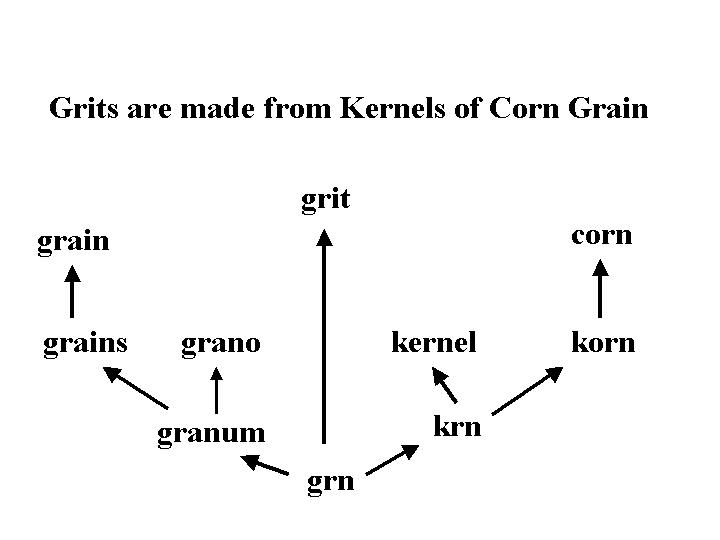
Shang Dynasty in China
- 1700-1000 BC
- First Chinese dynasty
- Yellow River Basin
Zhou Dynasty in China
- 1000-221 BC
- Yellow and Yangtze river basins
- Great Wall started in north
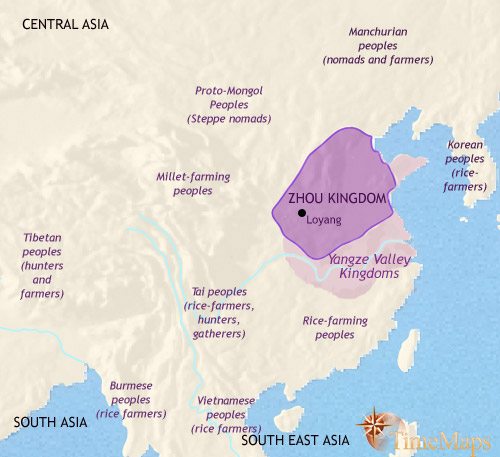
Ch'in Dynasty in China
- 221-206 BC
- Warring states of China united
- Includes Yellow, Yangtze, and Xi River Basins
Han Dynasty in China
- 206 BC-220 AD
- Western expansion opens Silk road
- Southward expansion for rice production
- Central control of dams, canals, irrigation
T'ang Dynasty in China
- 580-907 AD
- Grand Canal Opened
- Links Yellow and Yangtze river basins:1100 miles long
- Links Yellow and Yangtze river basins:1100 miles long
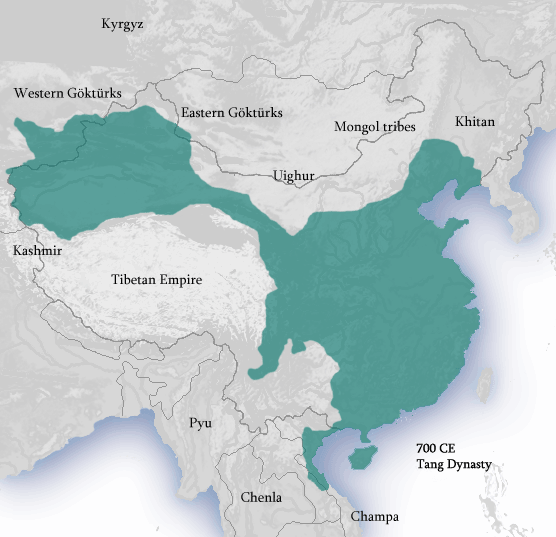
Expansion of Islam 632-1000 A.D.

Islamic Middle East
- Islam swept through Arabia, Egypt, Mesopotamia, Persia 632-660 A.D.
- Much of Hellenistic culture of Greeks and Romans lost
- Islam moved through North Africa, reaching Iberian Peninsula
- Islam was a leader in science, math, and technology
- Taught Europe during the Middle Ages
- Crusades against Islamic control of Holy Land: 1095-1291 A.D.
Religions of Europe: 1100-1200 A.D.

Mongol Empire: 1279-1368 AD

- Mongols conquered most of Asia
- China, Central Asia, Persia, to Danube River
- Great Military Achievement
- Mobile army on Horseback
- Trade within China restricted: Treasury Depleted
- Foreign trade welcomed: Marco Polo visits China
Ottoman Empire:
- Roman/Byzantine empire in Asia Minor conquered by Ottoman Turks 1176 A.D.
- Ottoman Empire expanded 1300-1699 A.D.
- Trade routes to China and India controlled by Islamic/Ottoman rule forcing Europeans to explore alternate routes around Africa.
Ottoman Empire 1300-1699 A.D.

Europe of the Middle Ages
- Many warring countries and city states
- Many languages
- Culturally unified by Catholic Church
- Roman Catholic church in West
- Eastern Orthodox in East
- Effort to push Moslems out of Iberia
- Venice a center of trade with Moslems
